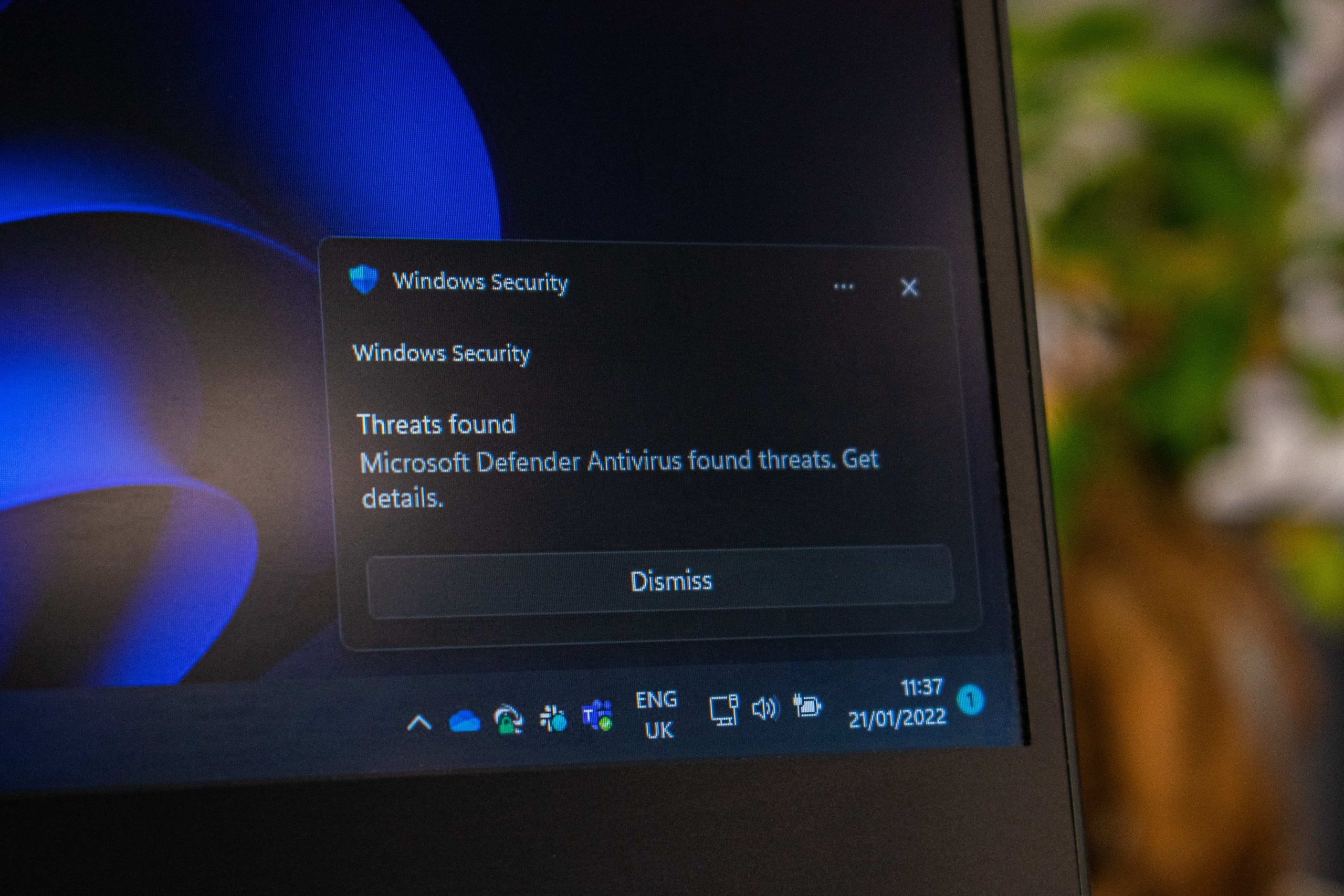Over the last several years, the area of information privacy and security regulations has changed significantly. International governments worldwide have passed or considered heavier rules on how organizations should collect, store, and process client data. For example, hiring a data protection officer allows companies to stay compliant with the EU’s General Data Protection Regulation (GDPR).
Of course, the GDPR rulebook helps reduce chaos. But it may become a challenging task to follow established regulations in case not being a GDPR specialist. That creates a great risk of non-compliance, which can result in fines of about 4% of your company’s revenue. Fortunately, with a data protection officer, you can avoid such losses. After all, to gain the maximum advantage of hiring a DPO, you should understand different aspects of this role.
Reviewing the Privacy Laws
Complying with data privacy is considered the critical line between using information legally and illegally. The existing laws and regulations that surround data privacy allow the protection of customers. That is because they ensure the security of their information.
Here are some well-known privacy laws created by lawmakers from the European Union and the United States:
- The EU’s Data Protection Directive. Established in 1995, this legal act aimed to ensure the appropriate security and privacy regarding personal information. Your company should have considered these rules if it exchanged or collected the EU citizen’s personal information for further processing
- The General Data Protection Regulation (GDPR). Adopted in 2016, GDPR had the goal to replace the EU’s Data Protection Directive. This regulation provides important approaches to processing and collecting personal data of both EU citizens and residents
- The Stop Hacks and Improve Electronic Data Security Act (SHIELD). The particular act provided several basic changes to New York’s cybersecurity legislation. That allows for better protection of personal information from potential breaches
- The California Consumer Privacy Act (CCPA). Created in 2020, the CCPA intends to prevent unauthorized access to data that is personally identifiable
Ultimately, new privacy rules are appearing rapidly around the globe. Modern businesses should understand how such regulations impact their ways of operating. Thus, they need to take relevant measures to maintain efficient compliance. That also allows avoiding great penalties and protecting your personnel, customers, and brand reputation.
Who Is a Data Protection Officer?
A data protection officer is considered an independent company leadership official who has expertise and experience dealing with GDPR. Thus, the role of the data security officer appeared under these regulations for performing internal privacy assessments. Such assessments allow overseeing, supervising, and providing consultations on various GRPD-related questions.
A data privacy officer obtains direct access to senior management, which helps improve decision-making regarding the personal data processing front. At the same time, senior managers have limited control over the DPO’s work. It means that they cannot pressurize data protection officers when a conflict of interest occurs. Besides, IT managers also cannot occupy the position of a data protection officer under any circumstances.
Why Is a Data Protection Officer a Necessity?
Hiring data protection professionals is becoming increasingly popular within the modern business world. That is because legislators and customers have a high demand for better data privacy. For instance, companies that must follow the GDPR are officially obliged to hire full-time data security officers on staff. After all, the need for DPOs will continue to remain high in data-rich industries, including tech, digital marketing, and healthcare.
According to the GDPR DPO requirements, hiring a data security officer is necessary under the following circumstances:
- When public authorities or public bodies are responsible for processing the personal information of EU citizens
- When the scope of regular and systematic information monitoring is performed on a large-scale basis
- When the company’s basic activities refer to the processing of specific information categories on a large scale
What Are the Responsibilities of a Data Protection Officer?
Considering the GDPR requirements, data protection officers should conduct the following tasks:
- Educate the organization and its personnel on compliance
- Train staff involved in the information processing
- Perform regular information security audits that allow enabling compliance and identifying potential issues
- Serve as a bridge between the organization and existing GDPR supervisory authorities
- Monitor performance and consult on better data privacy management
- Maintain a record of different information processing activities carried out by the company. That includes even the purpose behind such activities, which may become public on request
- Ensure that controllers and information subjects know about their data privacy rights. They should be informed about how information is used, the erasure of private data, and the existing data security measures
The mentioned tasks broadly cover numerous responsibilities of data security officers, but each of them contains many smaller duties. For instance, the facilitation of training personnel on compliance requirements involves:
- creating specific training materials
- developing or revising the employee handbook
- cooperating with managers to provide their teams with correct training schedules
- carrying out training with someone in charge of compliance activities
An efficient data protection officer should maintain strong working relationships with IT staff, security teams, and chief executives. Also, they must enforce the organization’s compliance policies and keep personnel accountable for such rules.
What Are the Data Protection Principles and Purposes?
Protecting information from breaches and losses and the ability to back it up are critical components of data security strategies. Among the basic principles of data privacy are safeguarding and ensuring that certain information is available under all possible circumstances. Therefore, there are two essential lines of protecting information: data management and data availability.
Creating the appropriate framework that can improve data security for your personnel and customer includes:
1. Implementing a general privacy risk management approach
Efficient privacy risk management allows building trust in your company’s products and services and communicating better about data security practices. Also, that enables your organization to meet relevant compliance obligations. Fortunately, you can utilize one of the already existing data privacy frameworks. An appropriate framework should provide a suite of recommended activities businesses can apply for managing security risks.
2. Hiring a data protection compliance SME
Having a data protection compliance subject matter expert (SME) in place is considered a necessity today. This employee helps develop effective compliance strategies to deal with specific regulations such as GDPR. That allows for facilitating compliance since an SME ensures a single source of expertise, which is crucial when developing compliance policies.
3. Conducting an inventory of systems and evaluating where your company has PII
All personally identifiable information (PII), along with sensitive personal data, should be identified and tagged. Businesses must do that when collecting and providing a way to track such information. That allows locating and protecting personal data and staying compliant with current legal standards.
4. Providing policies, procedures, and other technical safeguards
Companies that comply with existing privacy rules traditionally provide appropriate technical and physical safeguards. This approach ensures the company’s information integrity and availability. That also includes detecting and preventing any unauthorized access to the relevant data. Finally, organizations should continuously evaluate and update the IT measures for remaining compliant and tackling emerging threats.
5. Creating an incident response plan
A thorough information breach response strategy enables mitigating the damage of various intrusions. Personnel responsible for such a plan must get trained on all its aspects and learn how to utilize escalation channels. After all, the predicted corrective actions should be applied as preventive approaches against potential breaches.
6. Making all security and privacy compliance actions documented
Of course, using general-purpose file storage for housing and tracking your compliance files, reports, and records can be helpful. However, leveraging a purpose-built compliance software platform is considered much more efficient. This platform allows your organization to map documentation to specific compliance actions and re-use it easily.
7. Retaining records
Your organization should be able to provide proof of conformance for different inquiries. Thus, your company needs to use various reports and documents for verifying and accessing compliance. Finally, you should establish a proven process for reporting non-compliance.
What Should Your Data Protection Budget Include?
Apart from hiring a data protection officer, your organization has to allocate enough budget for implementing data privacy management tools. Such tools are divided into three key categories, including:
Privacy management software
This software allows automating complex or high volumes of data privacy management operations. That may include data mapping, data inventory, organization assessments, privacy impact evaluations, and responding to client requests. Besides, privacy management software enables your company to address data breaches efficiently, establish relevant policies, etc. After all, the particular software is incredibly useful when you:
- Deal with numerous privacy management activities
- Have complicated business processes
Security software
The tools available on the security software market allow the protection of business-critical data from information breaches and unauthorized access. Below, there are some main categories of security software:
- Event log manager & change management software. This software enables your company to record all changes or interactions regarding confidential information.
- Data loss prevention (DLP) technology. The relevant software programs help prevent your sensitive data from loss, misuse, or unauthorized access.
- Identity and access management (IAM)/Single Sign-On. IAM tools allow dictating who should access the relevant data and locking down confidential or sensitive information. They often come with single sign-on solutions. That involves providing user authentication and enabling individuals to access various services using one suite of credentials.
- Application security platform. Such a platform helps companies find existing vulnerabilities in their apps. That allows addressing these vulnerabilities and avoiding them in the future.
- Email security solution. The appropriate email security tools allow for keeping emails safe. To do that, they implement email encryption, spam filters, and robust password requirements.
- Vulnerability assessment solutions. These solutions work on your organization’s system, which allows finding any security-related vulnerabilities. Therefore, you can overcome them before hackers access your information.
Compliance operations software
Compliance ops software is new on the market. Many data protection professionals use it for tracking and documenting all compliance processes within their organizations. This type of software also creates storage for evidence and allows tracking of all existing compliance activities. Thanks to compliance ops software, your DPO can collaborate with different stakeholders for keeping control over data security practices.
So Do You Need a Data Protection Officer?
Hiring a data protection officer is essential for organizations that deal with large amounts of data. That will enable your business to make information privacy and security a top priority. Also, an appropriate DPO will help stay compliant with the necessary rules and frameworks.
Of course, numerous clients consider the privacy and security your company provides to their personal information. Therefore, you have to hire a professional data protection officer and give him the required tools for being successful. That will help ensure high-quality client privacy and maintain your reputation on the market.
Frequently Asked Questions
When it comes to appointing a data protection officer, GDPR states that you must do it in the following cases:
- your organization is a public authority
- your basic operations involve monitoring individuals on a large scale, regularly and systematically
- your basic operations require large-scale processing of specific information categories or data related to criminal convictions and offenses.
Your company might not deal with sensitive information, or you can only provide data processing for some individuals. Therefore, in such cases, hiring a DPO is not a mandatory step. But your organization still has to meet all other requirements predicted by GDPR.
There are no specific requirements provided by the GDPR a DPO should have. But you need to hire someone experienced who understands data privacy law appropriately. Also, this person should know how to apply such legal rules to the relevant sector where your company operates. Finally, a data protection officer must have the expertise to address the issues related to the type of information you process.
Actually, yes. But this employee should have the required experience, and such an appointment must not conflict with other responsibilities. In this case, your organization can redeploy this team member as a data protection officer.
Data protection for small businesses is an essential practice. Thus, they prefer outsourcing the data privacy officer role to different professional services companies specializing in data protection. The main advantage of employing an external DPO is that they often have specific certifications demonstrating the level of their expertise.
Hiring a data protection officer does not deprive the business owner of being responsible for GDPR compliance. It means that a DPO is not in charge of data breaches and losses. Instead, this role involves minimizing or mitigating such risks and encouraging the best possible data protection practices.
Ensuring your organization provides a data protection officer with adequate support in conducting his functions includes:
- Engaging the DPO in all information privacy questions
- Bringing the necessary resources and training materials to the DPO
- Requiring the DPO to create regular reports for senior management
- Enabling the DPO to be an independent actor
Data backups made simple
Automated. Secure. Fast.



